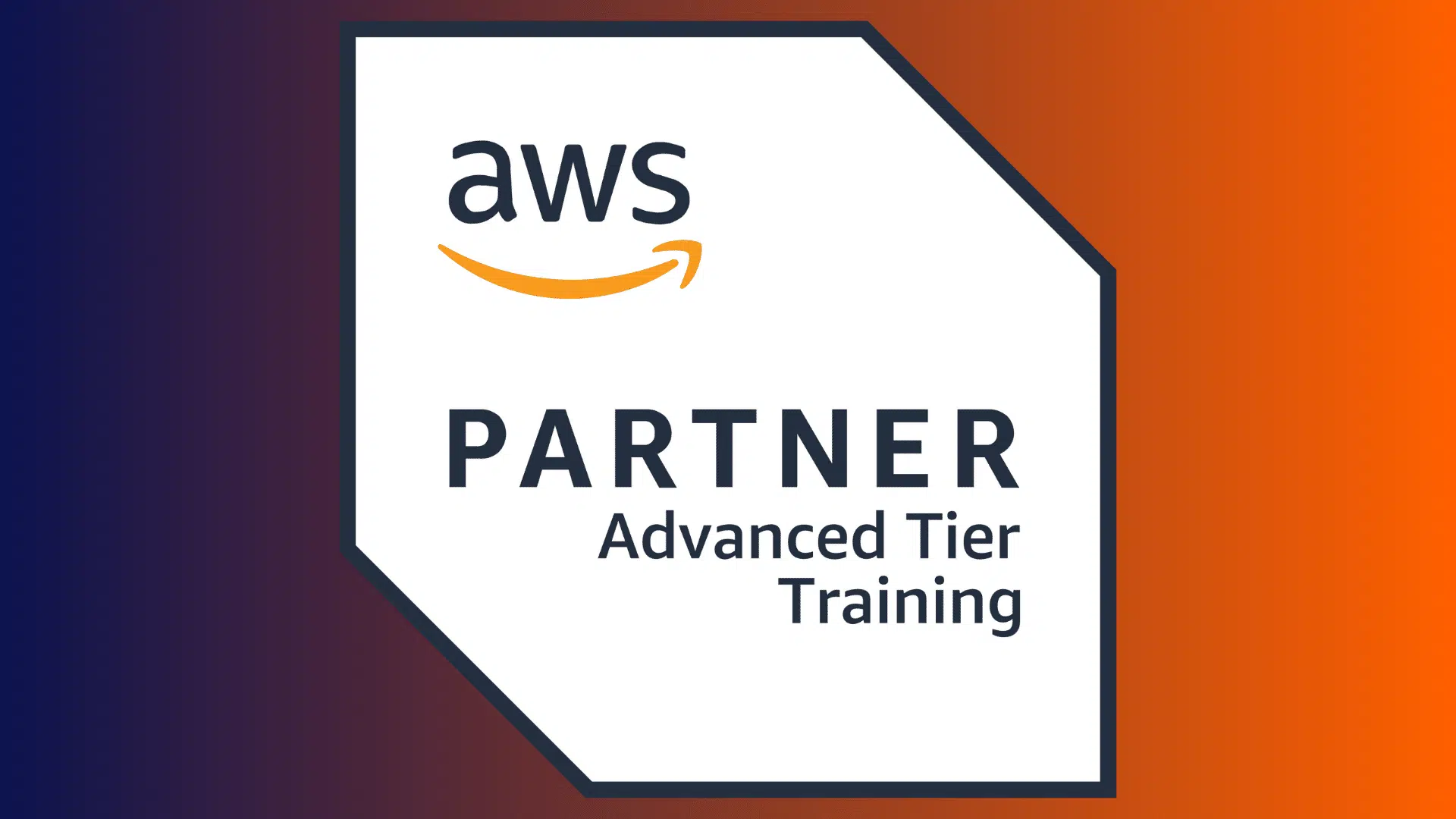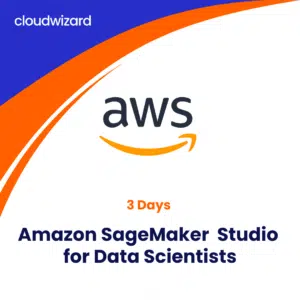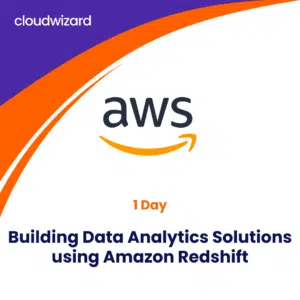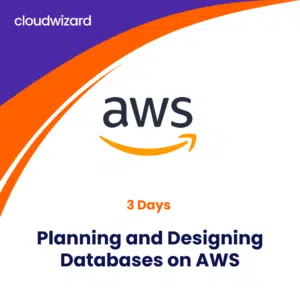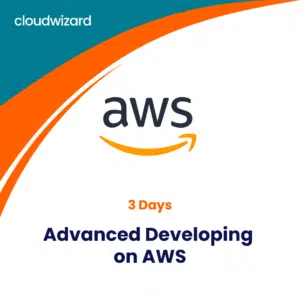DevOps Engineering on AWS
The course is ideal for DevOps Engineers, DevOps architects, Operation Engineers, system administrators and software developers. Additionally, you are recommended to have attended the Cloud Operations on AWS or Developing on AWS courses, have working knowledge of C#, Java, PHP, Ruby or Python, along with two or more years of experience in provisioning, operating and managing AWS cloud environments.
In this course, you will:
- Use DevOps best practices to develop, deliver, and maintain applications and services at high
velocity on AWS - List the advantages, roles and responsibilities of small autonomous DevOps teams
- Design and implement an infrastructure on AWS that supports DevOps development projects
- Leverage AWS Cloud9 to write, run and debug your code
- Deploy various environments with AWS CloudFormation
- Host secure, highly scalable, and private Git repositories with AWS CodeCommit
- Integrate Git repositories into CI/CD pipelines
- Automate build, test, and packaging code with AWS CodeBuild
- Securely store and leverage Docker images and integrate them into your CI/CD pipelines
- Build CI/CD pipelines to deploy applications on Amazon EC2, serverless applications, and container-based applications
- Implement common deployment strategies such as “all at once,” “rolling,” and “blue/green”
- Integrate testing and security into CI/CD pipelines
- Monitor applications and environments using AWS tools and technologies
This course is intended for:
- DevOps engineers
- DevOps architects
- Operations engineers
- System administrators
- Developers
We recommend that attendees of this course have:
- Previous attendance at the Systems Operations on AWS or Developing on AWS courses
- Working knowledge of one or more high-level programing languages, such as C#, Java, PHP, Ruby, Python
- Intermediate knowledge of administering Linux or Windows systems at the command-line level
- Two or more years of experience provisioning, operating, and managing AWS environments
Module 0: Course Overview
- Course objective
- Suggested prerequisites
- Course overview breakdown
Module 1: Introduction to DevOps
- What is DevOps?
- The Amazon journey to DevOps
- Foundations for DevOps
Module 2: Infrastructure Automation
- Introduction to Infrastructure Automation
- Diving into the AWS CloudFormation template
- Modifying an AWS CloudFormation template
- Demonstration: AWS CloudFormation template structure, parameters, stacks, updates, importing resources, and drift detection
Module 3: AWS Toolkits
- Configuring the AWS CLI
- AWS Software Development Kits (AWS SDKs)
- AWS SAM CLI
- AWS Cloud Development Kit (AWS CDK)
- AWS Cloud9
- Demonstration: AWS CLI and AWS CDK
- Hands-on lab: Using AWS CloudFormation to provision and manage a basic infrastructure
Module 4: Continues Integration and Continues Delivery (CI/CD) with Development Tools
- CI/CD Pipeline and Dev Tools
- Demonstration: CI/CD pipeline displaying some actions from AWS CodeCommit, AWS CodeBuild, AWS CodeDeploy and AWS CodePipeline
- Hands-on lab: Deploying an application to an EC2 fleet using AWS CodeDeploy
Module 5: Continues Integration and Continues Delivery (CI/CD) with Development Tools
- AWS CodePipeline
- Demonstration: AWS integration with Jenkins
- Hands-on lab: Automating code deployments using AWS CodePipeline
Module 6: Introduction to Microservices
- Introduction to Microservices
Module 7: DevOps and containers
- Deploying applications with Docker
- Amazon Elastic Container Service and AWS Faregate
- Amazon Elastic Container Registry and Amazon Elastic Kubernetes service
- Demonstration: CI/CD pipeline deployment in a containerized application
Module 8: DevOps and Serverless Computing
- AWS Lambda and AWS Faregate
- AWS Serverless Application Repository and AWS SAM
- AWS Step Functions
- Demonstration: AWS Lambda and characteristics
- Demonstration: AWS SAM quick start in AWS Cloud9
- Hands-on lab: Deploying a serverless application using AWS Serverless Application Model (AWS SAM) and a CI/CD Pipeline
Module 9: Deployment Strategies
- Continuous Deployment
- Deployments with AWS Services
Module 10: Automated Testing
- Introduction to testing
- Tests: Unit, integration, fault tolerance, load, and synthetic
- Product and service integrations
Module 11: Security Automation
- Introduction to DevSecOps
- Security of the Pipeline
- Security in the Pipeline
- Threat Detection Tools
- Demonstration: AWS Security Hub, Amazon GuardDuty, AWS Config, and Amazon Inspector
Module 12: Configuration Management
- Introduction to the configuration management process
- AWS services and tooling for configuration management
- Hands-on lab: Performing blue/green deployments with CI/CD pipelines and Amazon Elastic Container Service (Amazon ECS)
Module 13: Observability
- AWS tools to assist with observability
- Hands-on lab: Using AWS DevOps tools for CI/CD pipeline automations
Module 14: Reference Architecture (Optional Module)
- Reference architectures
Module 15: Course Summary
- Components of DevOps practice
- CI/CD pipeline review
- AWS Certification
Why choose Cloud Wizard
- Advanced Tier Training Partner
- Amazon Authorised Instructors
- Official AWS Content
- Hands-on Labs
Class Deliverables
- E-Content kit by AWS
- Hands-on labs
- Class completion certificates
- Exam Prep sessions
Dates Available
Choose a date that works for you and click on Book Now to proceed with your registration.
| Method | Duration | Start Time | Start date | Price | Action |
|---|---|---|---|---|---|
| Classroom | 3 days | All Day | May 15, 2024 | ₹45,000 | |
| Classroom | 3 days | All Day | May 29, 2024 | ₹45,000 | |
| Classroom | 3 days | All Day | June 5, 2024 | ₹45,000 | |
| Classroom | 3 days | All Day | June 19, 2024 | ₹45,000 |
Don't see a date that works for you?
Fill in the form below to let us know.
Related courses
Related products
-
AWS Training
Amazon SageMaker Studio for Data Scientists
This course empowers data scientists to swiftly prepare, build, train, deploy, and monitor machine learning (ML) models. Seasoned data scientists can benefit from the course by gaining skills to master SageMaker Studio tools, including Amazon CodeWhisperer and Amazon CodeGuru Security scan extensions, enhancing productivity across the ML lifecycle.
We recommend that all students complete the AWS Technical Essentials course before enrolling in this program. Additionally, those without prior experience in data science should complete The Machine Learning Pipeline on AWS and Deep Learning on AWS courses, followed by gaining 1-year on-the-job experience.
-
AWS Training
Building Data Analytics Solutions Using Amazon Redshift
In this course, you will build a data analytics solution using Amazon Redshift, a cloud data warehouse service. The course focuses on the data collection, ingestion, cataloging, storage, and processing components of the analytics pipeline. You will learn to integrate Amazon Redshift with a data lake to support both analytics and machine learning workloads.
You will also learn to apply security, performance, and cost management best practices to the operation of Amazon Redshift.
-
AWS Training
Planning and Designing Databases on AWS
In this course, you will learn about planning and designing your solutions with purpose-built Amazon Web Services (AWS) Cloud databases. The course introduces you to the features and characteristics of each of these databases and shares the design considerations that you should make while using them. By taking this course, you can develop the analytical skills needed to choose the right AWS database for your unique needs.
By the end of the course, you will be able to analyze a business use case, analyze the workload, and assess application requirements to identify and design the most suitable AWS database solution to support your organizational needs
-
AWS Training
Advanced Developing on AWS
This course is focused around analyzing a monolithic application and determining logical break points where the application can be broken down across various AWS services. You will learn advanced development techniques to deconstruct on-premise legacy applications and repackage them into cloud-based architectures.
You will also learn to apply twelve-factor application manifesto concepts and steps while migrating from a monolithic architecture, along with using the AWS API, CLI and SDKs to monitor and manage AWS services
The course is recommended for experienced software developers who are already familiar with various AWS services. You will need at least one high-level programming language and working knowledge of core AWS services and public cloud implementations. We also recommend that you should have completed the Developing on AWS classroom course and have a minimum of six months experience in applying these concepts in real life

